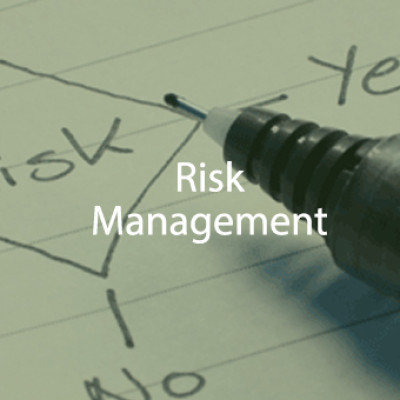Education programmes of job
Financial Economics and Banking MSc Financial Markets MSc
Monetary and Financial Economics MSc
Applied Statistics

Nature of work
Your main role as a financial risk analyst is to formalize the process of risk management within an organization. You will make business decisions and enable the process of risk taking. Obviously, such a decision is not easy to make; it is a huge responsibility. Therefore, you will have to conduct research and statistical analysis in order to assess the severity of risk and evaluate it, using statistical software (SPSS, SAS). As a result of your research, you will make recommendations to reduce/control risk, which may involve an insurance strategy, and present ideas for improvements. You will have to manage resources wisely and consider proposed business decisions. You will also be responsible for protecting the organization’s public image. You will be in direct contact with traders to calculate the risk associated with specific transactions. This is not all; you will be in charge of forecasting market trends, analyzing a bank's market position and running figures through complex modeling techniques to find value at risk (VAR) measurements. In addition, you will study government legislation, which may affect a company, and advise on compliance. Last but not least, you will develop contingency plans to deal with emergencies. Environment of work
Hopefully you can stand working long hours and handle work pressure because, as a financial risk analyst, you will be working extra hours on a regular basis in order to meet deadlines. But do not worry because first, you will not be working shifts and second, you will have the weekends all for yourself. Your work will be mainly office based, but you may visit other organizations within the working day occasionally. You may also have to spend some nights away from home when needed. When you have enough experience in this domain, you can consider working as a freelance and become a professional consultant.Finally, if you want to find your opportunity, then large towns and cities should be your main destination. If you are lucky enough to be employed by a large company, there may be opportunities for you to travel abroad.
Professional life
There are different types of risk analysis available for you to choose from. To begin with, you can become a credit risk specialist who analyzes the risk to the company when customers do not pay for goods or default on loans. Or you may like to be a market risk specialist where you analyze the risk that outside factors may affect the share price or the market. You will work closely with traders to calculate the risk associated with specific trading transactions. Another option is to be an operational risk analyst, and your main task is to look at the likelihood of risky events (system breakdowns and employee fraud). The last choice is to be a regulatory risk analyst and you will be looking at the impact on the company of new legislation.You can first choose which type of analyst you would like to be, then you can work hard to prove and improve yourself. If you want to progress in your career, try to seek a place in large organizations where you will have greater opportunities for development internally. A typical career path in a large financial institution might be credit risk analyst, senior credit risk analyst or risk manager.
Range of typical starting salaries: 35000 SYP plus potential bonuses.
Getting the job
As mentioned previously, dealing with numbers and statistics form great part of your job, so employers are increasingly looking for degrees in finance, mathematics or statistics. If you want to increase your chances of getting this position, you can follow subjects like Finance, Mathematics, Statistics, Accountancy, Legal Studies, Business, Economics, and Engineering. Skills
Along with the academic qualifications, your job as a financial risk analyst requires certain skills. To help you out, we have provided you with a list of the most important skills you will need in order to be successful in this job.As a financial risk analyst you should work on improving the following skills :
strong numeracy and analytical skills;
good research skills;
planning/organizational skills and problem-solving ability;
IT competence (SPSS software) /computer literacy;
negotiation skills;
written and oral communication skills;
the ability to explain complex issues and present technical information clearly;
commercial awareness;
the ability to work independently and to cope with pressure and responsibility;
the confidence to relate to a wide range of people and to challenge people when necessary.
Sources and references
If you need any further information on what is provided in this file, you can visit the following websites: www.financialanalyst.org, American Academy of Financial Management
Arab Standard Classification of Occupations, 2008, Ed. Arab Labor Organization
Summary
As a financial risk analyst you will identify and analyze the areas of potential risk threatening the assets, earning capacity or success of organizations in the industrial, commercial or public sector. Think of yourself as a risk manager. You should forecast cost to the organization and predict change and future trends.There are high degrees of specialization within the profession. You may work in sales, origination, trading, marketing, financial services or private banking.
